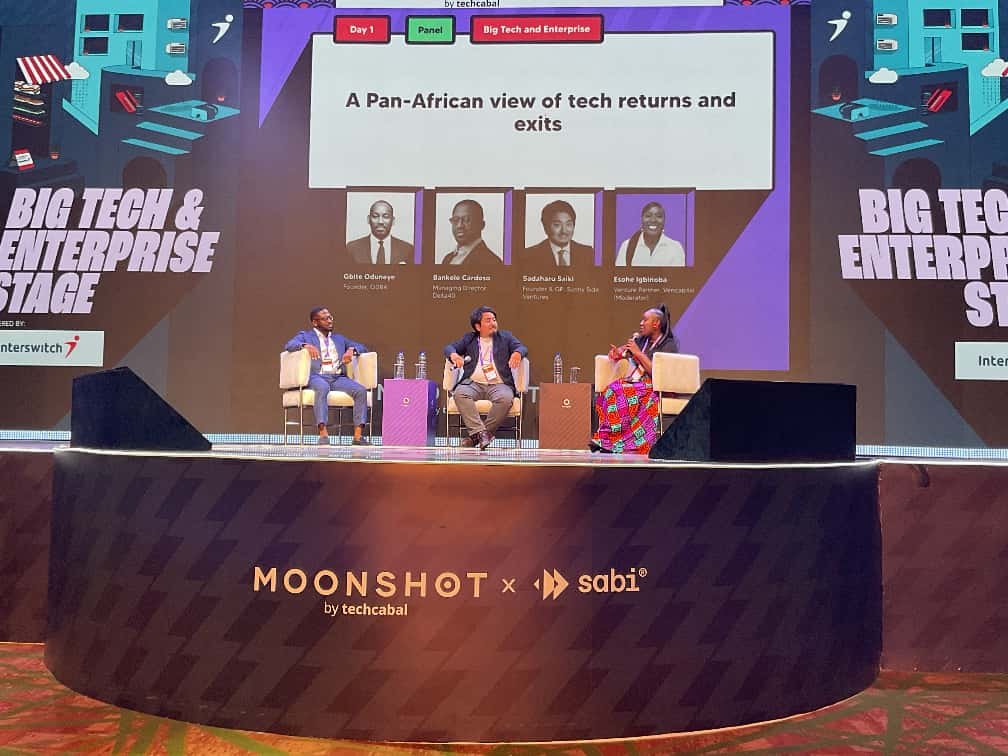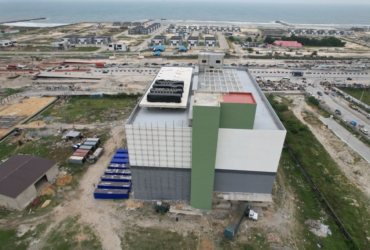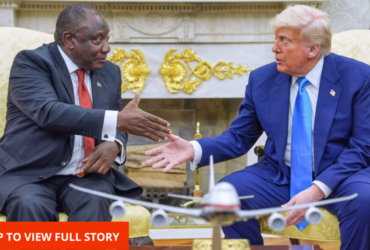African startups are raising more money than ever, but few are seeing real returns. That was the unflinching verdict of the Pan-African View of Tech Returns and Exits panel at Moonshot by TechCabal 2025, where Bankole Cardoso, Managing Director of venture studio, Delta40, Sadaharu Saiki, founder of Sunny Side Ventures, and Esohe Igbinoba, a Venture Partner for Vencapital, confronted the structural gaps holding back liquidity across the continent.
The conversation revealed that while the continent has hundreds of startups scaling fast, too few reach the liquidity events, like initial public offerings (IPOs), acquisitions, or secondaries, that recycle investor capital and reward founders.
“Exits are very, very important for our financial supply chain, because, at the end of the day, it’s not just the startups who have to fundraise. VCs also have to fundraise to make Africa a viable destination in the current financial supply chain,” Saiki said.
He shared his own comparative research where he compared the number of exits in Africa to that of other regions. He stated that in 2023, just 30 exits were recorded across Africa’s 54 countries, compared with 83 in Southeast Asia and 178 in Japan. He used this to show how the gap in exit volume across regions underlines why capital remains trapped in African growth-stage startups. Japan and India’s success, he explained, stems from having vibrant public markets and structured IPO systems that allow investors to cash out regularly.
Cardoso highlighted that founders who want their startups to be attractive for strategic exits need to start with the basics many overlook: governance and financial discipline. He explains that setting up a formal or even advisory board early builds structure and credibility, while keeping clean records and management accounts from day one ensures transparency when investors or buyers arrive. “Those are the steps that you should really have taken from day one to really understand your business and to help investors coming in to understand your business. So the cliche, things are really governance and financials.”
The conversation also explored how deal structures are evolving. While global venture funding has slowed, debt financing is quietly becoming a more common bridge for African startups. Panelists noted that a growing number of startups now combine equity and debt to sustain growth while waiting for better exit opportunities, a reflection of how founders are adapting to limited liquidity.
“I think the mix of debt and equity is going to be the next phase, because we have been too focused on equity and some financing phases are better financed by debt,” Saiki adds.
The crux of the conversation seemed to be that Africa’s exit problem is about design. Exits must stop being afterthoughts and become embedded in strategy, structure, and capital planning. Only then can founders and investors expect capital to flow in.















Leave a Reply